In recent times, Bac Kan province has promoted vocational training, improved skills and qualifications, created jobs for workers in rural areas and reduced poverty sustainably, contributing positively to local socio-economic development.
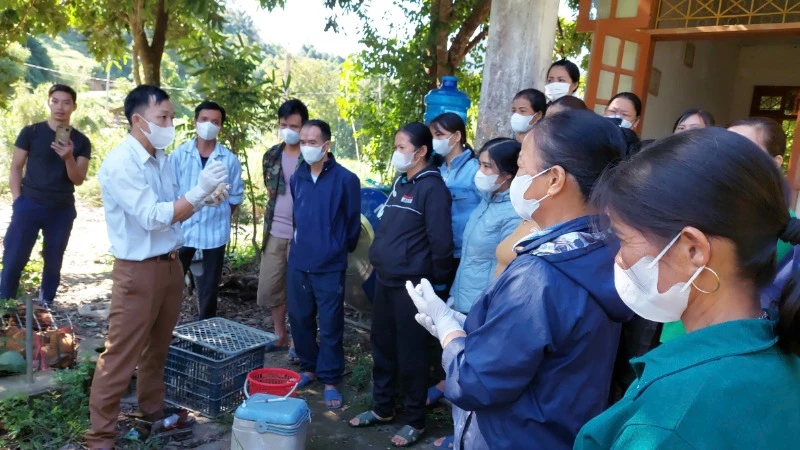 |
| Vocational training in animal husbandry in Na Ri district. (Photo: THU TRANG) |
According to statistics, rural workers in Bac Kan currently accounts for 75% of the population. In order for people to have sustainable livelihoods, the province has focused resources on improving the quality of vocational training associated with job creation.
Vocational education has changed awareness, improved vocational skills, enhanced the quality of human resources, and created job opportunities for many workers.
After more than 10 years of working as a construction worker, Mr. Nong Van Giap, Cho B village, Con Minh commune (Na Ri) mainly worked based on the experience learned from friends, so the efficiency was not really high.
Knowing that the commune was opening a construction class, Mr. Giap signed up to attend. Two months later, Mr. Giap was granted a vocational certificate and, more importantly, he learned how to calculate construction materials and some other difficult techniques.
This helps Mr. Giap improve his skills and income. Previously, his daily wage was usually 200,000 VND, but after learning the trade, it increased to 300,000 VND.
Among the workers who have participated in vocational training in Na Ri district, there are many OCOP product entities that have achieved 3-star certification or higher. OCOP entities have developed relatively stably, some entities have risen to organize effective production and business, boldly invested, applied science and technology in production, and produced products that are competitive enough in the market such as dong vermicelli, Chinese sausage, Duong Canh oranges, Xa Doai oranges, seedless persimmons, medicinal products, etc.
 |
Teaching beverage mixing in Bac Kan city. (Photo: THU TRANG) |
Notably, the 5-star vermicelli product of Tai Hoan Cooperative has been exported to the European market. The entities have linked production and product consumption with more than 2,000 people in the production area, creating jobs for more than 1,000 farmers. Initial screening results show that Na Ri district will reduce 3.5% of poor households by 2024, partly contributed by vocational training for rural workers.
According to Head of the Department of Labor, War Invalids and Social Affairs of Na Ri district Nong Thi Diep, in 2024, Na Ri district opened 39 training classes for 1,365 workers, exceeding 223.8% of the target assigned by the Provincial People's Committee.
The Department has closely coordinated with specialized agencies and local authorities to promote propaganda and raise awareness for grassroots cadres and people; collect information on educational level, professional qualifications and occupations of workers participating in local production and business activities.
Along with vocational training, localities also integrate resources to support plants and animal breeds for people to apply trained farming and livestock techniques.
According to the Director of the Na Ri District Agricultural Service Center, Ly Van Tuyen, in 2024, the district will support breeding chickens for 180 poor, near-poor and policy families in the area. All closed processes from supplying breeding materials to consumption, people can rest assured without worrying about output. With all breeding and feed supported, households will be able to follow the guided breeding process well.
In other localities, vocational training and job creation have also been promoted. The results have contributed positively to the shift in labor structure, job creation, the achievement of sustainable poverty reduction goals, and the construction of new rural areas.
For localities, vocational training focuses on implementing vocational training under 3 months while promoting job counseling and referrals for workers.
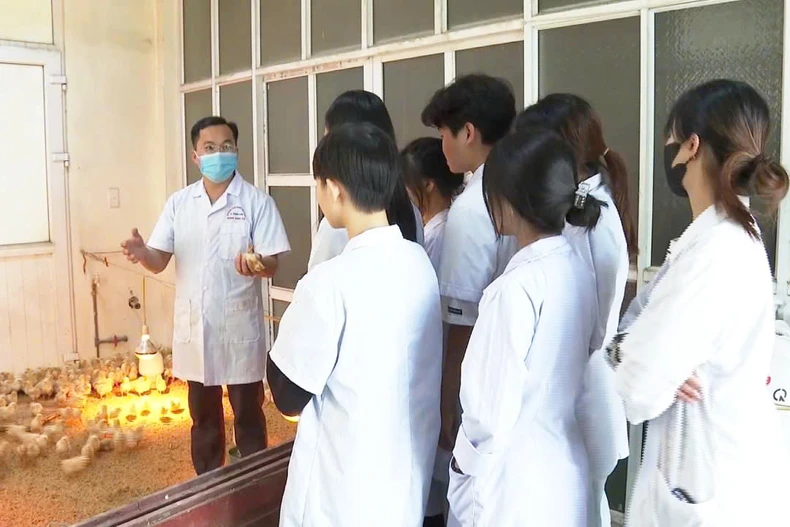 |
Vocational training at Bac Kan College. (Photo: THU TRANG) |
According to Mr. Ma Van Son in Phieng Luong village, Cong Bang commune (Pac Nam), through the class, students gain more knowledge and techniques in caring for and preventing diseases for livestock. Along with theory, the class spends a lot of time on practice, so after completing the course, students can immediately apply it to their families, helping to increase productivity and income.
According to Director of Pac Nam District Vocational Education and Continuing Education Center Hoang Van Vy, the unit has been focusing on coordinating to promote propaganda and consultation to help people grasp and fully understand the information, as a basis for choosing the profession to study. During the course, students learn both theory and practice, so after finishing the course, they can apply the knowledge to actual production, creating opportunities to find jobs. In 2024, the unit conducted 23 vocational training classes with 805 students.
According to the Department of Labor, War Invalids and Social Affairs of Bac Kan, the Center for Vocational Education and Continuing Education in districts in the province have focused on investigating and surveying the needs of learners to serve as a basis for developing training plans; at the same time, building programs in an open direction, close to the requirements and aspirations of learners and linked to the planning and socio-economic development plans of the locality.
In 2023, the province will organize vocational training for 9,147 rural workers with 15 occupations being trained. Through a survey of needs from the grassroots, the Department of Labor, War Invalids and Social Affairs has advised the province to build technical and economic norms for 16 new occupations.
In 2024, Bac Kan province will implement a plan to enroll and provide vocational training for 6,000 people (of which 3,000 will be trained for rural workers); create jobs for 6,400 people; send 700 workers to work abroad under contracts; organize job counseling and referrals for 8,000 people...
From the results achieved, Bac Kan has identified the main target by 2025, to create jobs for 6,400 people/year; the number of workers going to work abroad under contract is 700 people/year; organizing job consultation and introduction for 8,000 people/year, of which 500 workers find jobs; annually providing vocational training for 6,000 people or more; the rate of workers receiving vocational training is 50% or more.
The chosen training method is learning combined with practice, "hands-on training", direct guidance, training at production sites, in villages, hamlets, and communes, focusing on practice.
Tuan Son - Thu Trang
Source: https://nhandan.vn/day-nghe-giup-giam-ngheo-o-bac-kan-post853473.html



![[Photo] President Luong Cuong attends special political-artistic television show "Golden Opportunity"](https://vstatic.vietnam.vn/vietnam/resource/IMAGE/2025/8/22/44ca13c28fa7476796f9aa3618ff74c4)
![[Photo] President Luong Cuong receives delegation of the Youth Committee of the Liberal Democratic Party of Japan](https://vstatic.vietnam.vn/vietnam/resource/IMAGE/2025/8/22/2632d7f5cf4f4a8e90ce5f5e1989194a)

![[Photo] Prime Minister Pham Minh Chinh chairs the conference to review the 2024-2025 school year and deploy tasks for the 2025-2026 school year.](https://vstatic.vietnam.vn/vietnam/resource/IMAGE/2025/8/22/2ca5ed79ce6a46a1ac7706a42cefafae)




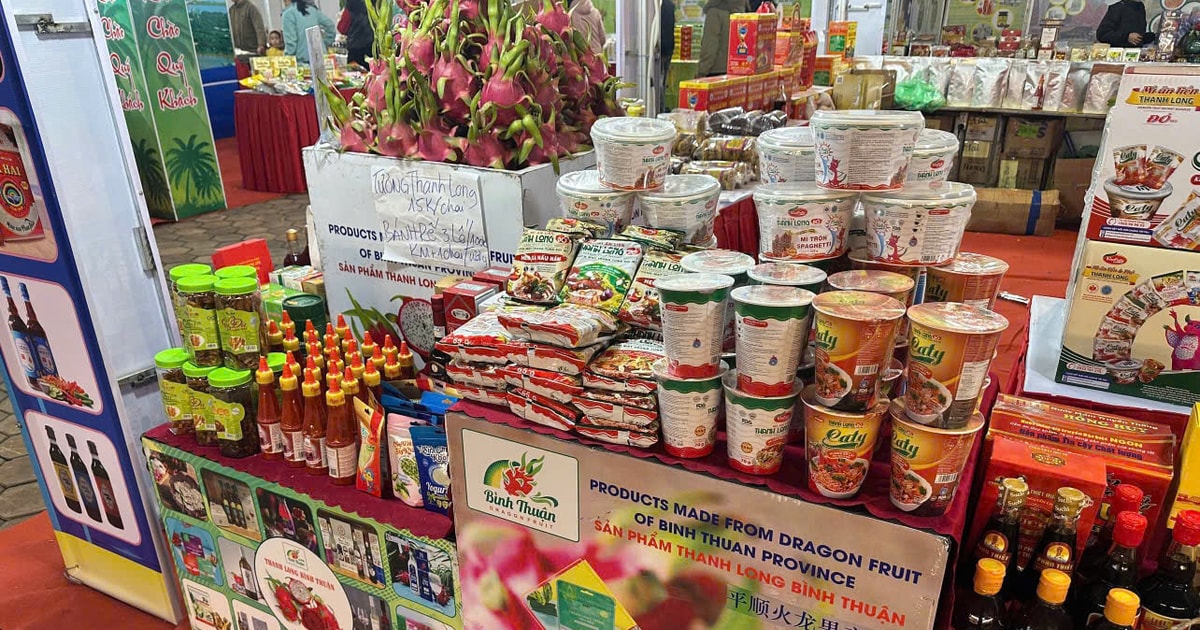

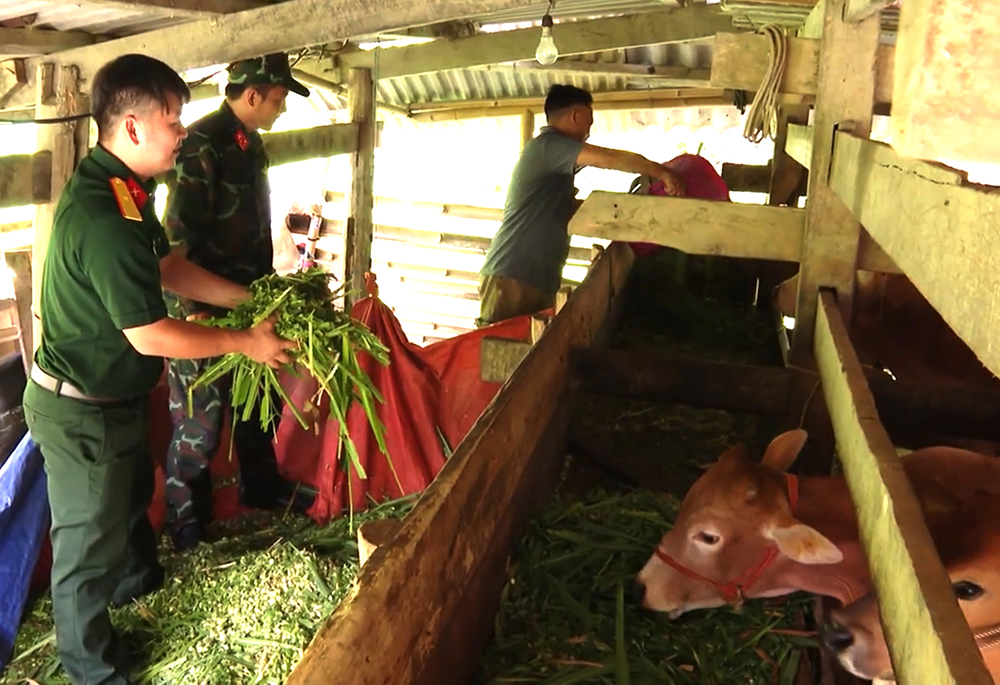



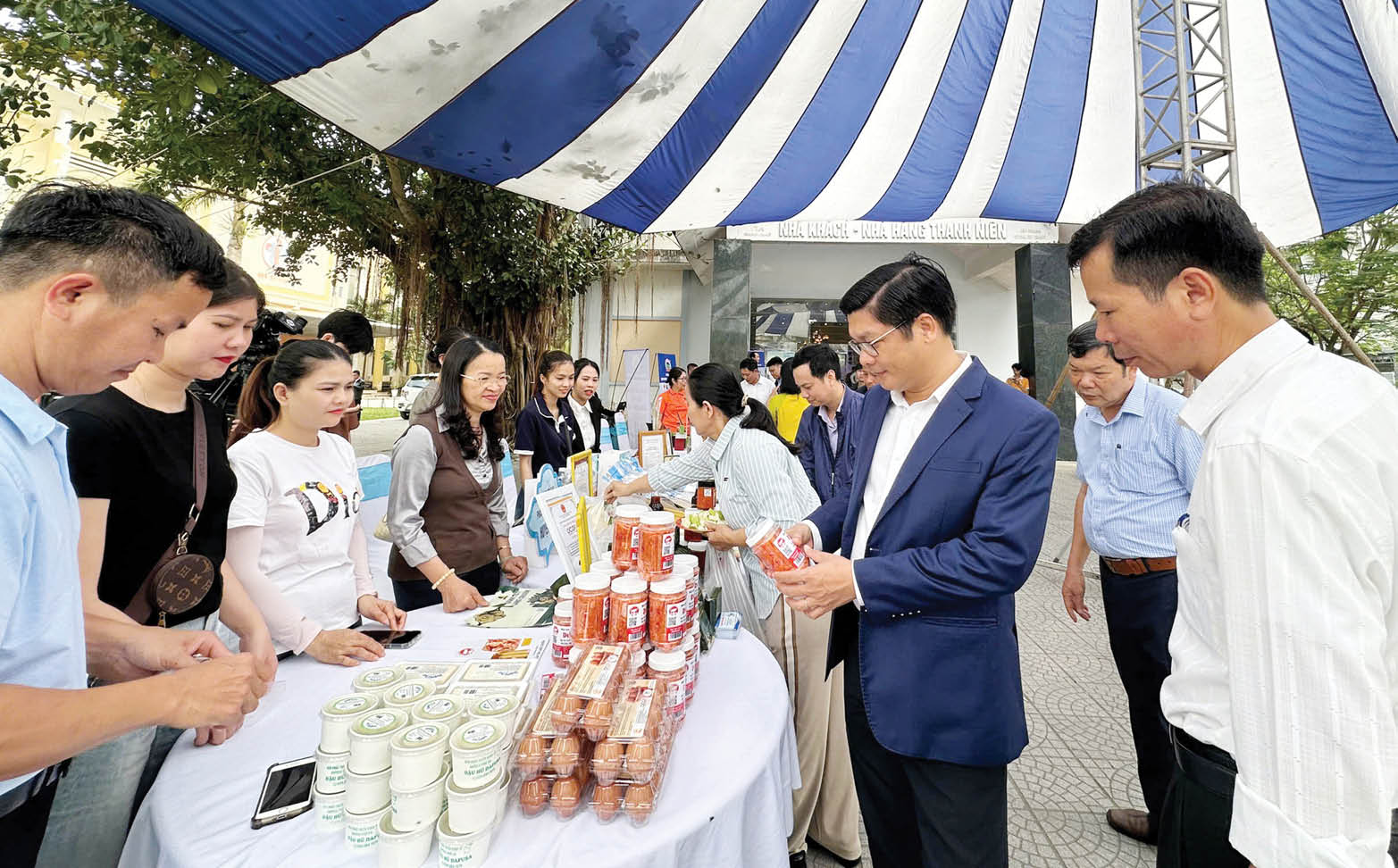


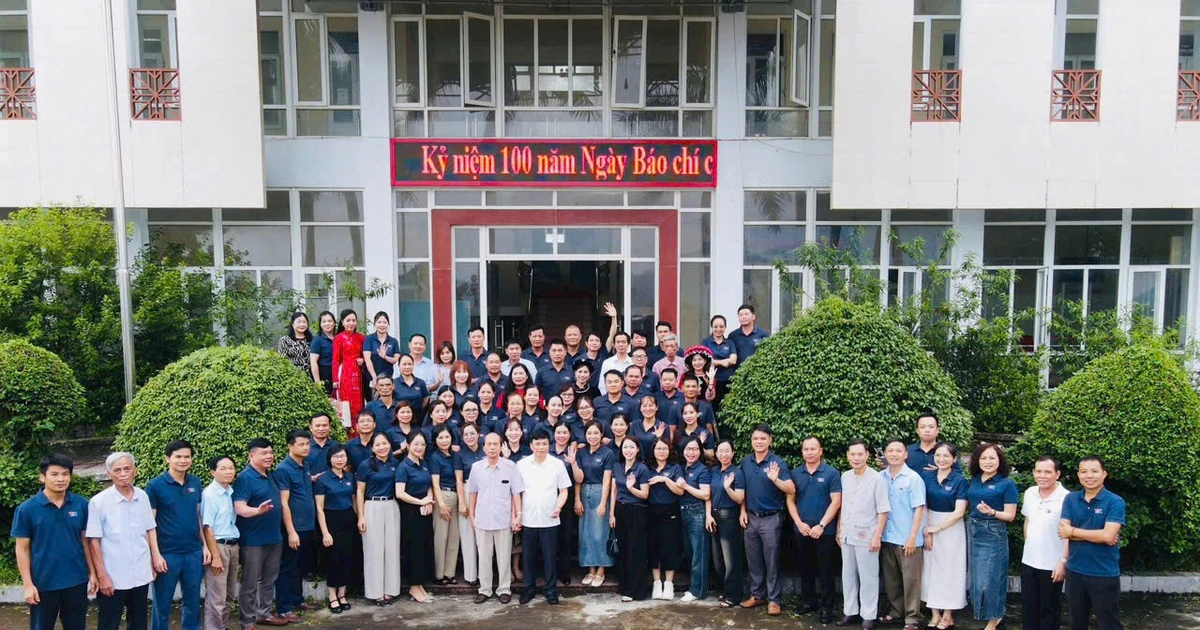



































































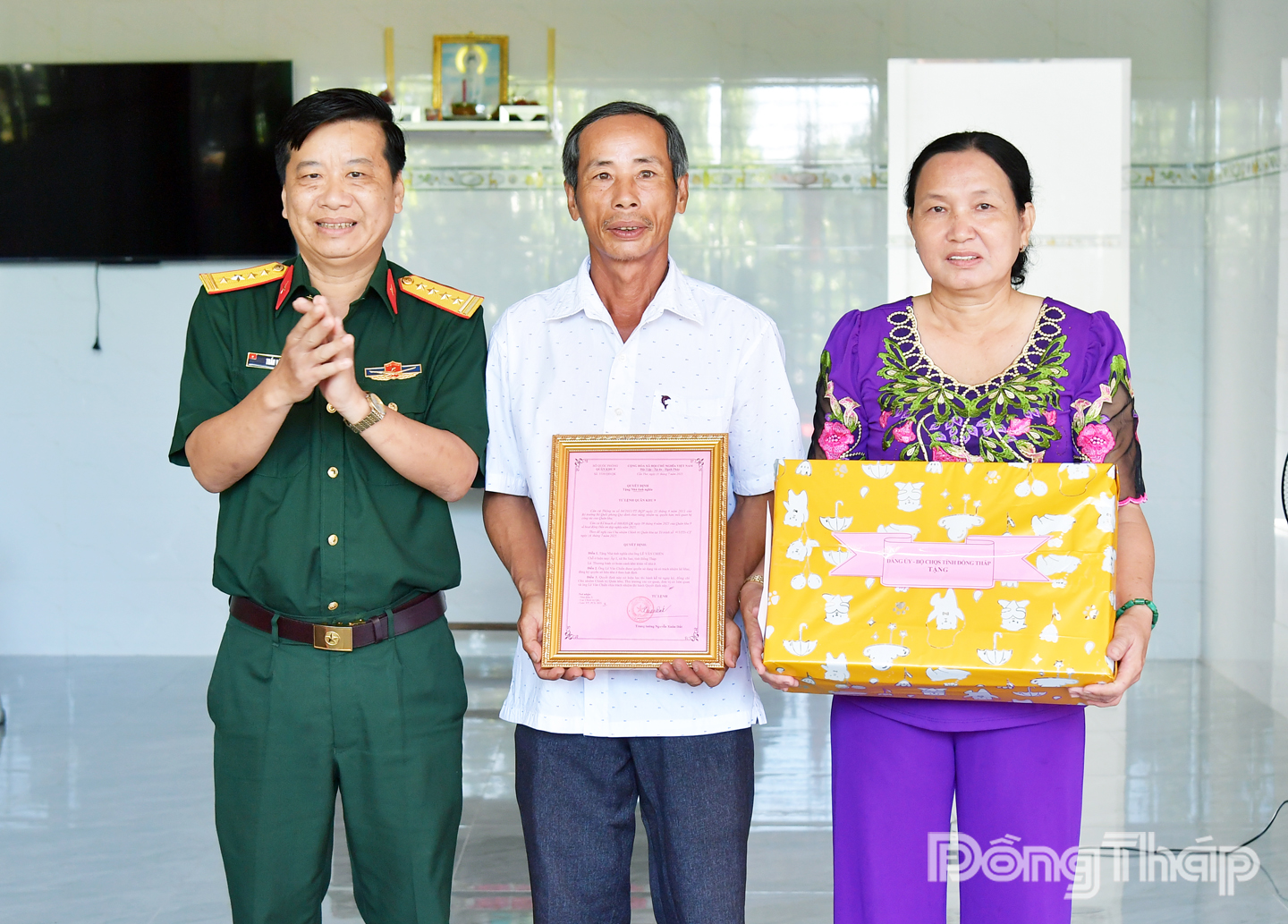

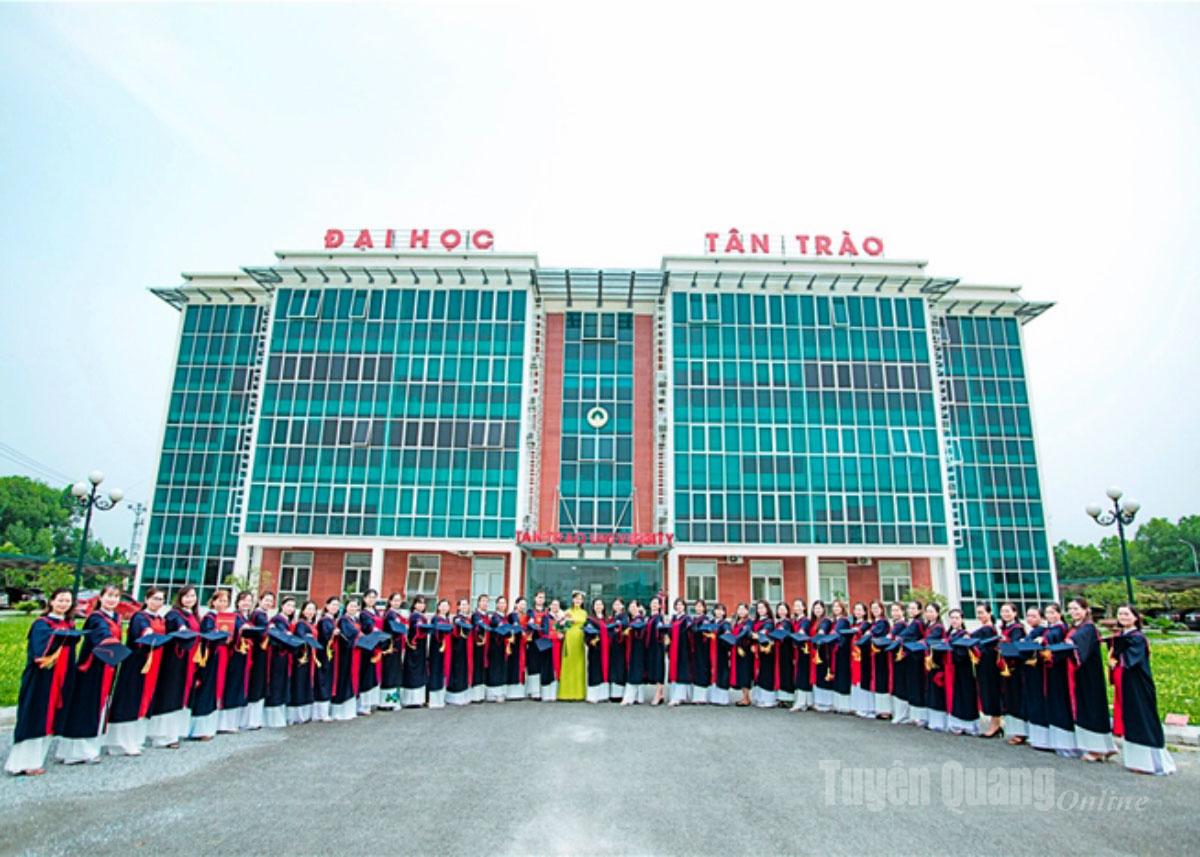














Comment (0)